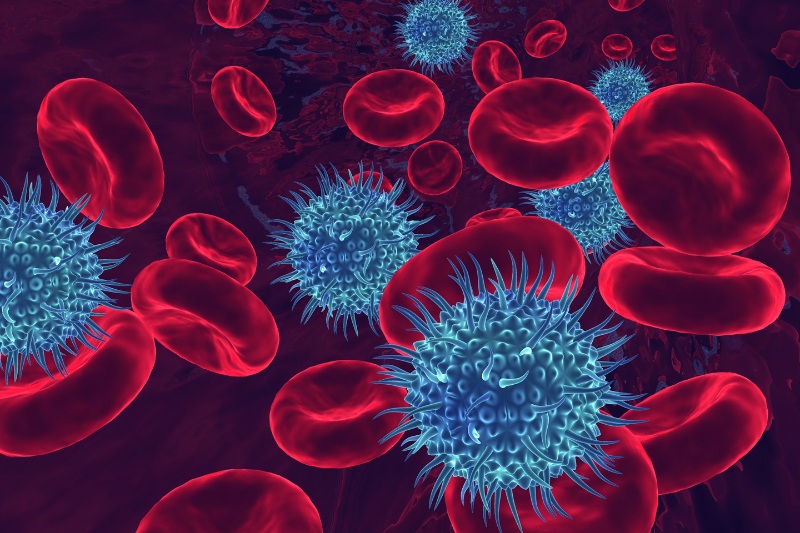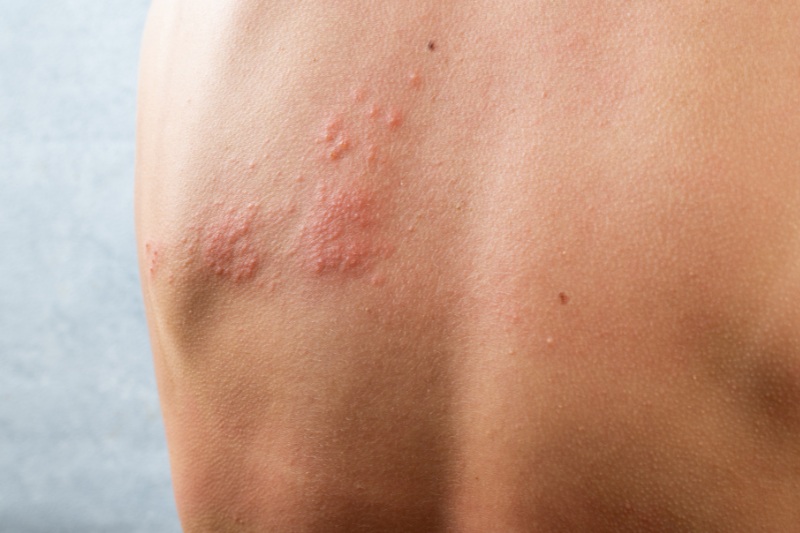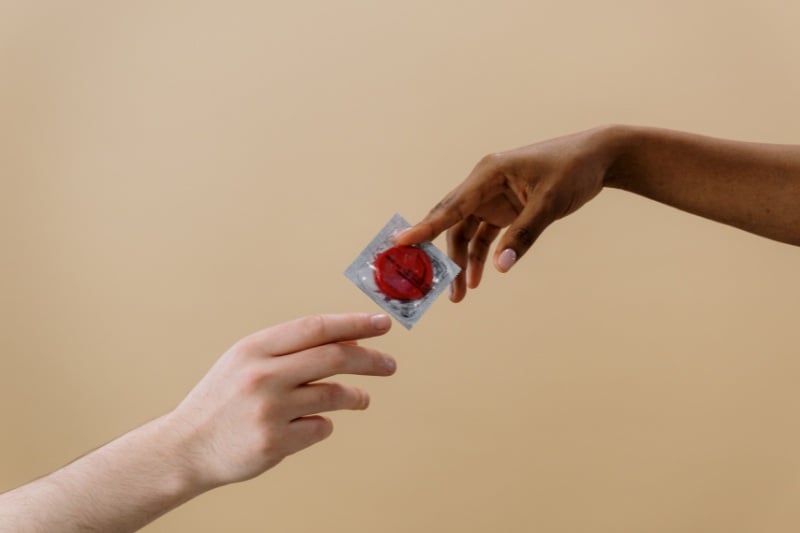HIV symptoms are often similar between sexes, but some HIV symptoms in men are distinct from those in women. While the probability of getting HIV is almost the same for both sexes, it is much higher for men who have sex with men and do not use condoms or undergo regular health checks. Let’s explore the HIV symptoms in men with Docosan in this article!
Tóm tắt nội dung
HIV/syphilis detection test at home
To check for HIV or syphilis infection, Docosan provides a quick home test kit priced at 280,000 VND per set. After a simple blood draw from the tip of your finger, you will receive the results immediately within 15 minutes. If you test positive for HIV, syphilis, or both, you will receive support in connecting with a specialist. Your doctor will advise you on what steps to take to manage the disease and minimize possible complications.

What is HIV?
HIV stands for Human Immunodeficiency Virus, which invades the immune system’s cells and impairs their function, leading to destruction. Progressive HIV infection weakens the immune system and ultimately results in acquired immunodeficiency syndrome (AIDS).
HIV is a lentivirus classified in the Retroviridae family of viruses, which have a reverse transcriptase enzyme that enables RNA to be copied into DNA. Currently, two types of HIV viruses have been identified: HIV-1 and HIV-2, which have similar transmission routes but differ in some structural details.

Viruses consist of three layers: an outer membrane, an inner shell, and a core layer. The core layer contains essential components for virus replication and completion.
Transmission route causes HIV symptoms in men
HIV is mainly transmitted through sexual contact, but it can also be transmitted through blood, such as sharing syringes during injection drug use or blood transfusions (which is now rare).
Gay men, particularly those who engage in receptive anal sex, are at a higher risk of infection due to the vulnerability of the anal mucosa. Combined with the lack of safe sex practices, such as condom use, HIV has spread rapidly among men who have sex with men over a long period.

However, today, due to the promotion of condom use and preventive measures such as taking PrEP or PEP, the number of HIV infections in men has been somewhat controlled.
HIV symptoms in men
In addition to the symptoms that are common to all people with HIV, there are five sex-specific signs that can help lead to a diagnosis. These include a decreased libido.
Decreased libido is a sign of sexual dysfunction, possibly due to a lack of the hormone testosterone and is linked to HIV. Hypogonadism can also cause:
- Erectile dysfunction
- Tired
- Depression
- Less hair growth on face and body
- Breast tissue development

Common symptoms of HIV include pain and open sores in the mouth or esophagus. In men, these sores can also appear on the anus or penis and may recur.
Difficulty urinating, such as experiencing pain or a burning sensation, could be HIV symptoms in men with a sexually transmitted disease or prostatitis (inflammation of the prostate gland). It is sometimes caused by bacterial infections. Some symptoms of prostatitis include:
- Pain during ejaculation
- Urinating more often than usual
- Cloudy, foamy, or bloody urine
- Pain in the bladder, testicles, penis, mid-scrotum, rectum
- Pain in the lower back, abdomen, or groin
The signs of HIV are generally similar in both women and men, such as the presence of sores on the penis. HIV can lead to impaired sexual function or decreased sex hormone secretion in both sexes. However, the effects of hypogonadism (a condition where the body doesn’t produce enough sex hormones) are easier to observe in men than women. Symptoms of low testosterone levels, a manifestation of impaired sexual function, may include erectile dysfunction (ED).
Prevention of HIV infection
One of the most effective ways to prevent HIV transmission is to avoid contact with body secretions that carry the virus. Here are some preventive measures that can help reduce the risk of transmission:
- Use condoms during vaginal or anal sex. When used correctly, condoms are relatively effective at protecting against HIV.
- Avoid intravenous drug use and never share or reuse needles. Many cities around the world have needle exchange programs that provide sterile needles.
- Take precautions when handling blood or other bodily fluids. Remember that blood can be contagious, so use rubber gloves and other barriers to protect yourself and others.
- Get tested for HIV. HIV testing is the only way to know if the virus has been transmitted. People who test positive can receive the treatment they need and take steps to reduce the risk of passing the virus on to others.

If you experience HIV symptoms in men and are concerned that you may have HIV, visit the nearest testing center to get tested. This will aid in the diagnosis of HIV and prompt treatment.
Please refer to HIV/ Syphilis Test at Docosan
In addition, Docosan is one of the units with home HIV testing services. You can detect if you have HIV from the early stages. Sampling at home ensures privacy and convenience
The article is consulted from doctors and reliable domestic and foreign sources.











